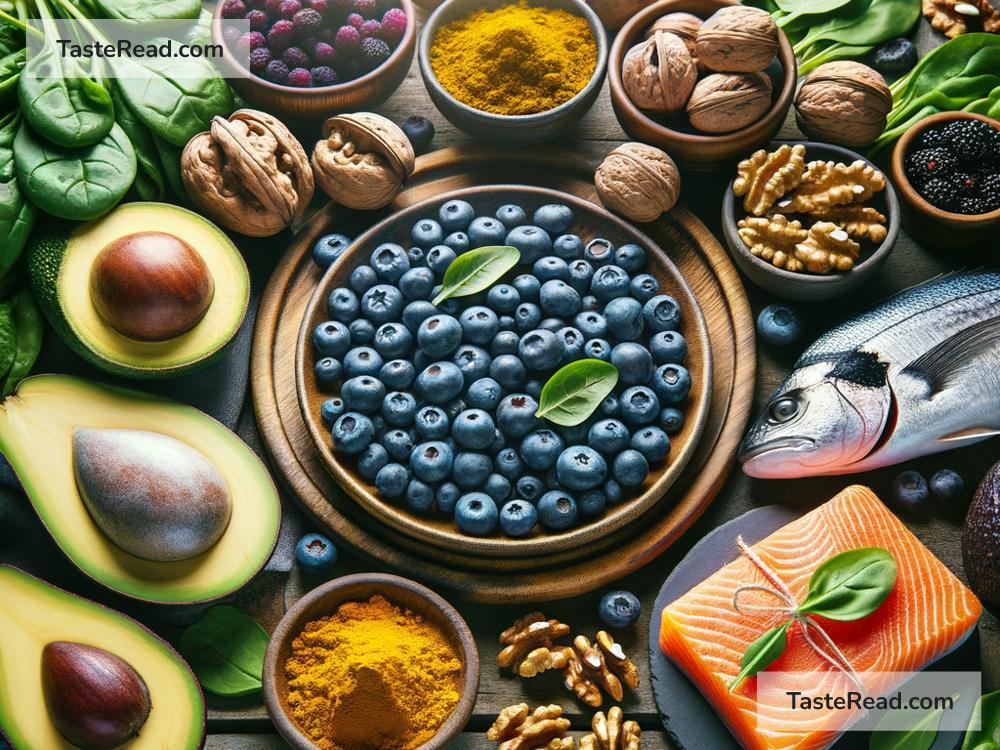Boost Your Brainpower: Foods That Help Reduce Memory Impairment
Memory is key to our daily lives, whether we’re remembering names, dates, or simple tasks. But as we age, many people face challenges with memory impairment, which can make even small tasks feel overwhelming. The good news? What we eat can have a big impact on brain health! Including certain foods in your diet can protect your brain, improve memory, and reduce the risk of cognitive decline. In this blog post, we’ll explore simple, delicious foods that can help keep your brain sharp.
Why Does Food Matter for Memory?
Your brain works hard every second of the day, using energy from the food you eat. Just like your body needs nutrients for muscle strength, your brain needs “brain-friendly” nutrients to stay healthy. Vitamins, healthy fats, antioxidants, and minerals all play a role in fighting inflammation, maintaining brain cell health, and improving communication between nerve cells. Eating the right foods is like giving your brain the tools to repair itself and stay sharp.
Foods That Boost Memory and Brain Health
Here are some top memory-friendly foods you should consider adding to your diet:
1. Fatty Fish
Fatty fish, such as salmon, mackerel, sardines, and trout, are rich in omega-3 fatty acids. Omega-3s are essential for building brain cells and improving communication within the brain. Studies have shown that people who eat more omega-3s tend to have better memory and may even experience slower cognitive decline.
If you’re not a fan of fish, you can try plant-based omega-3 sources like flaxseeds, chia seeds, and walnuts.
2. Blueberries
Blueberries are often called “brain berries” for their amazing memory-boosting benefits. These tiny fruits are packed with antioxidants like flavonoids, which help reduce inflammation and oxidative stress in the brain. Antioxidants may delay brain aging and improve communication between brain cells, helping you keep your memory sharp.
Other berries, such as strawberries and blackberries, also provide similar benefits, so feel free to mix them up in your diet!
3. Nuts and Seeds
Nuts and seeds are champions when it comes to brain health. Walnuts are especially good, thanks to their high levels of omega-3s and antioxidants. Almonds, flaxseeds, pumpkin seeds, and sunflower seeds are also rich in vitamin E, which has been found to reduce cognitive decline as we age.
Snack on a handful of nuts and seeds or add them to salads and oatmeal for a nutritious brain boost.
4. Leafy Green Vegetables
Leafy greens like spinach, kale, and broccoli are full of nutrients like vitamin K, lutein, folate, and beta carotene. These ingredients help keep brain cells healthy and protect against memory impairment. Vitamin K, in particular, has been linked to improved cognitive function, while folate may support brain health by reducing inflammation.
Make leafy greens a regular part of meals by adding them to smoothies, soups, stir-fries, or salads.
5. Whole Grains
Whole grains provide a steady supply of energy to your brain because they are rich in complex carbohydrates. Foods like oats, quinoa, brown rice, and whole grain bread improve blood flow to the brain, which is essential for memory and focus.
Replace refined grains, like white bread or white rice, with whole grains to give your brain the boost it needs throughout the day.
6. Dark Chocolate
Yes, chocolate can be good for your brain—as long as it’s dark chocolate! Dark chocolate with at least 70% cocoa contains flavonoids and antioxidants that may improve brain function and enhance memory. It can also boost mood, which indirectly helps with thinking and concentration.
Enjoy a small piece of dark chocolate as a treat. Just remember to eat it in moderation since chocolate can be calorie-dense.
7. Turmeric
Turmeric is a golden spice known for its strong anti-inflammatory and antioxidant properties. Curcumin, the active ingredient in turmeric, can cross the blood-brain barrier and protect brain cells. Some studies suggest that turmeric may help memory by clearing away harmful plaques associated with Alzheimer’s disease.
Sprinkle turmeric into soups, stews, or teas for a flavorful and brain-friendly addition.
8. Eggs
Eggs are rich in vitamins like B6, B12, and folate, which are essential for brain health. They also contain choline, a nutrient that supports the production of neurotransmitters and enhances memory and learning.
Whether boiled, scrambled, or added to salads, eggs are a simple and versatile way to improve your diet.
Simple Tips for Brain-Friendly Eating
- Balance is key. Stick to a variety of foods to ensure you’re getting enough nutrients for brain health.
- Stay hydrated. Water is essential for concentration and memory, so make sure to drink enough throughout the day.
- Limit processed foods. Sugary snacks and junk food may damage brain health, so opt for natural foods instead.
Final Thoughts
Fighting memory impairment doesn’t have to be complicated. By choosing nutrient-rich foods like fatty fish, blueberries, nuts, leafy greens, and whole grains, you’re giving your brain the best chance to stay clear and focused. Small changes to your diet can lead to big results for long-term brain health. Remember, the earlier you start paying attention to your food choices, the better your chances of preserving memory as you age.
So why not start today? Grab a handful of walnuts, enjoy a salmon salad, or whip up a spinach smoothie—you’ll be feeding your brain while enjoying delicious, wholesome meals. A healthy brain makes for a happier, sharper you!


